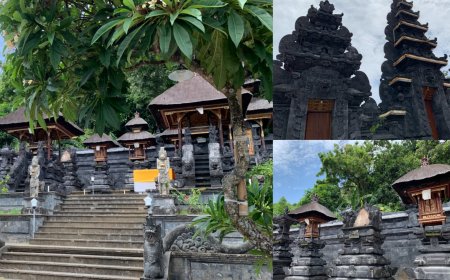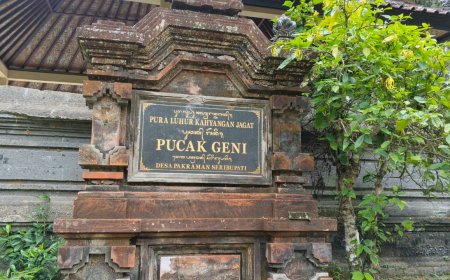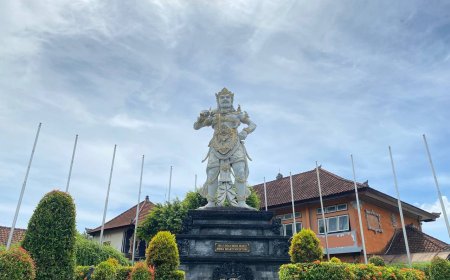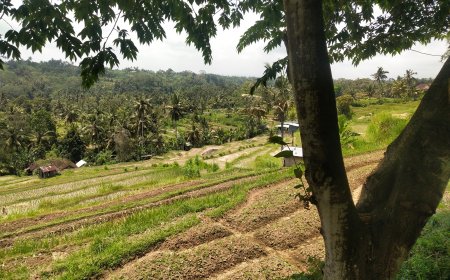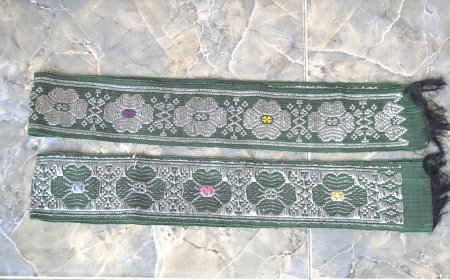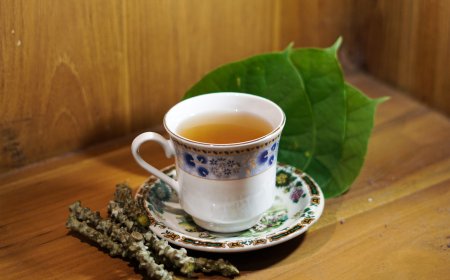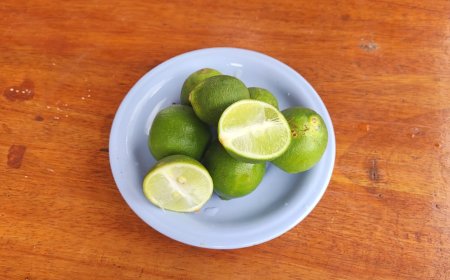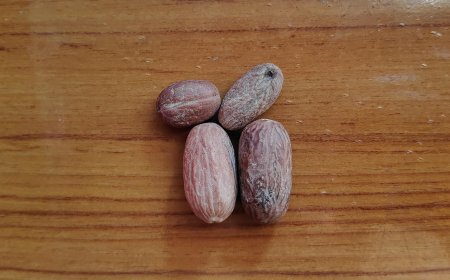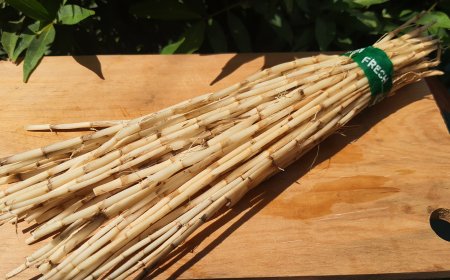Ylang-Ylang: Traditional Therapy from Lontar Taru Pramana for Healing and Relaxation
Ylang-ylang (Cananga odorata) is a native plant of Southeast Asia known for its calming aroma and various health benefits. In the lontar Taru Pramana, this flower is recognized as a natural solution in traditional Balinese medicine. Through simple processing methods such as essential oil and infusion, ylang-ylang can be utilized to reduce stress and care for the skin, making it an effective choice for enhancing physical and mental well-being.
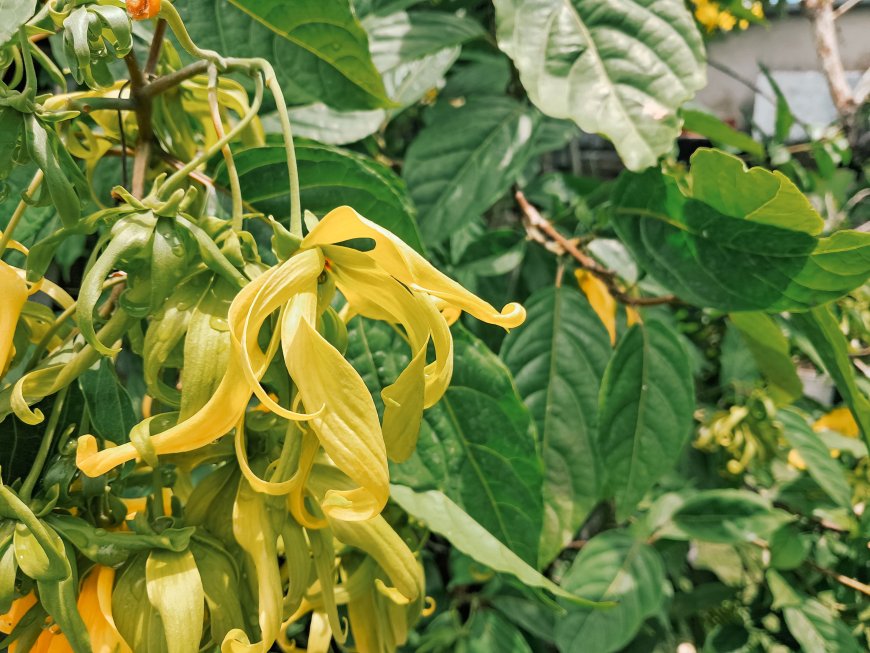
Ylang-ylang, also scientifically known as Cananga odorata, is a distinctive plant that thrives well in Southeast Asian regions, including Indonesia. Known for its soft and soothing fragrance, this flower holds high aesthetic value and plays an important role in traditional medicine. In the context of Balinese medicine, the benefits of ylang-ylang have been recorded in the lontar Taru Pramana, an ancient manuscript that compiles knowledge about the properties of various medicinal plants used by the Balinese for centuries. This manuscript provides in-depth insights into the ways to utilize ylang-ylang for various health purposes, from aromatherapy that helps relieve stress and anxiety to its use in skincare for maintaining health and beauty.
Benefits of Ylang-Ylang
Ylang-ylang has long been recognized for its remarkable health benefits. Its unique and refreshing aroma not only provides a calming effect but also helps alleviate anxiety that often troubles the mind. Inhaling the scent of this flower before bedtime can enhance sleep quality, making it an ideal choice for those who experience sleep difficulties or insomnia. In addition to its benefits for anxiety and sleep, ylang-ylang also plays a crucial role in reducing stress caused by daily activities. With its active compounds, this flower can help lower stress hormone levels in the body.
Processing Ylang-Ylang
Ylang-Ylang Essential Oil
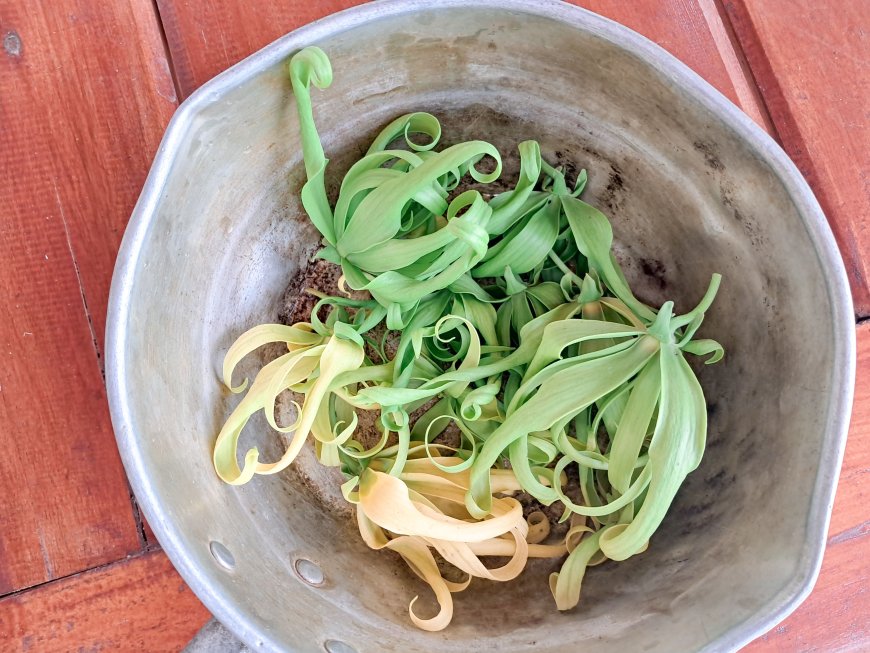 Cananga Flowers Placed in a Pot (Source: Personal Collection)
Cananga Flowers Placed in a Pot (Source: Personal Collection)
- Add coconut oil or olive oil until the flowers are fully submerged.
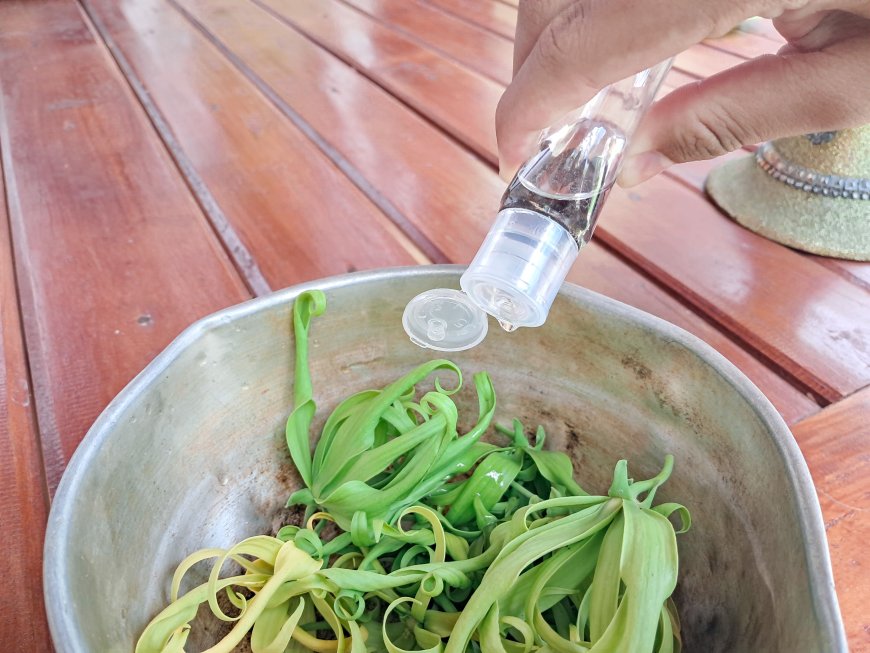 Coconut Oil or Olive Oil Added (Source: Personal Collection)
Coconut Oil or Olive Oil Added (Source: Personal Collection)
- Heat the pot on low heat for 1-2 hours, ensuring it does not boil to preserve the essential oil content.
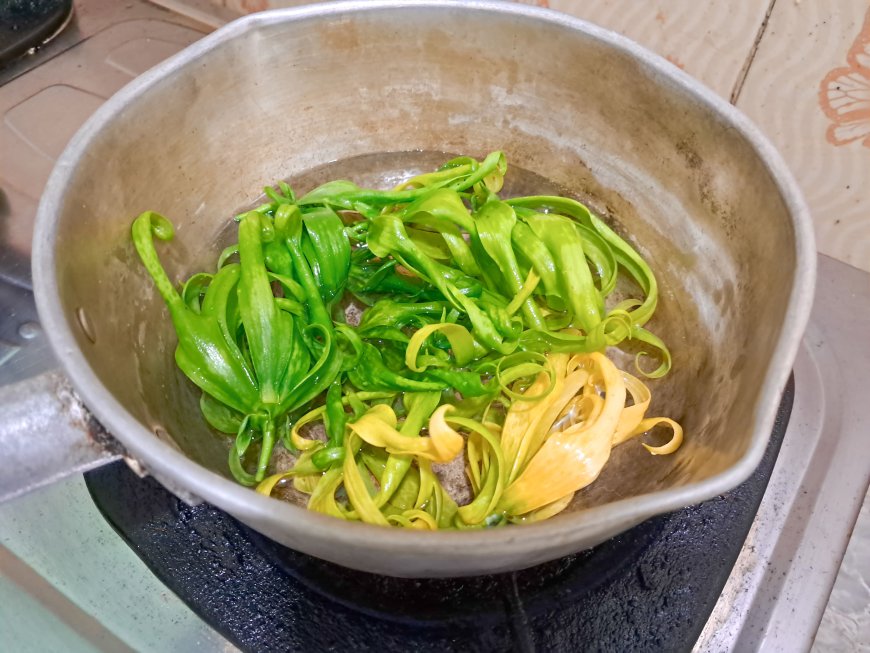 Cananga Flowers and Olive Oil Heated (Source: Personal Collection)
Cananga Flowers and Olive Oil Heated (Source: Personal Collection)
- Once the oil has a strong ylang-ylang aroma, strain the mixture and store it in a glass bottle.
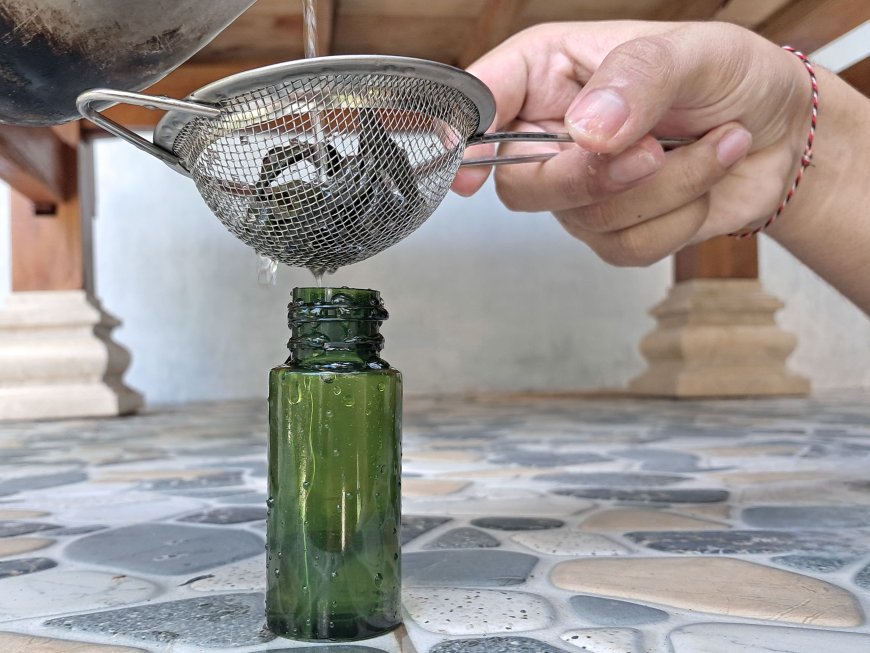 Strain and Store the Mixture in a Bottle (Source: Personal Collection)
Strain and Store the Mixture in a Bottle (Source: Personal Collection)
Usage: This essential oil can be used for massages, applied to the skin, or as aromatherapy in a diffuser. It can help relax muscles, create a calming atmosphere, and care for skin health.
Ylang-Ylang Infusion for Skincare
 Cananga Flowers Soaked in Warm Water (Source: Personal Collection)
Cananga Flowers Soaked in Warm Water (Source: Personal Collection)
- After the infusion cools down, strain the flowers and collect the water.
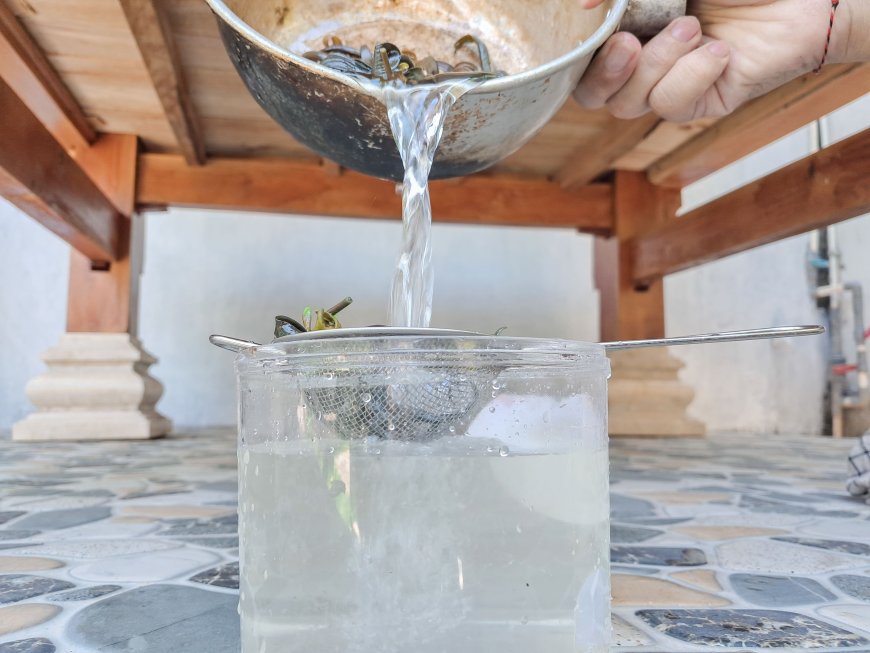
Usage: This ylang-ylang infusion is highly beneficial for skincare. It can be used to wash the face, compress the skin, or as a natural toner, especially for oily or acne-prone skin. It helps control oil production and maintain skin balance.


